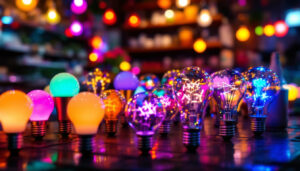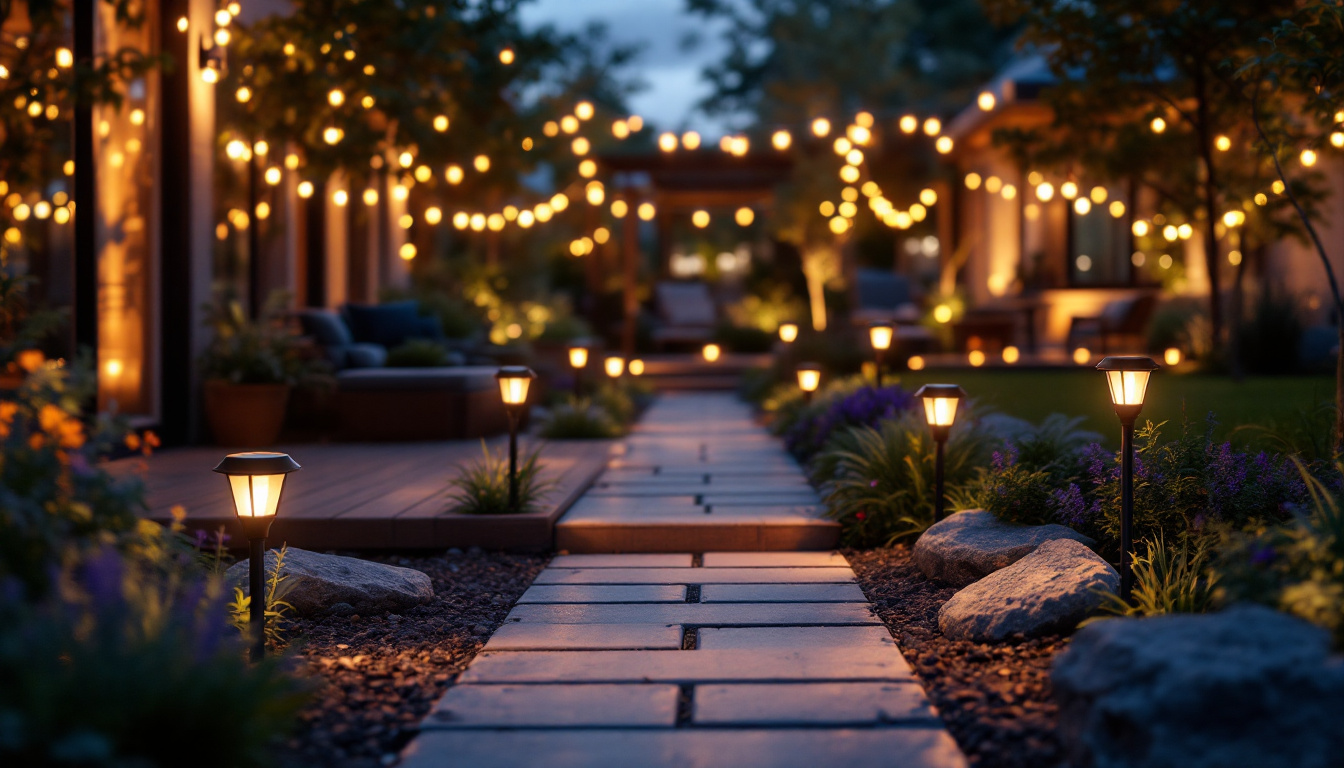

As the demand for sustainable and energy-efficient lighting solutions continues to grow, outdoor solar lights have emerged as a popular choice for both residential and commercial applications. For lighting contractors, understanding the intricacies of waterproof outdoor solar lights is essential for delivering high-quality installations that meet client expectations. This article provides expert advice on selecting, installing, and maintaining these innovative lighting solutions.
Waterproof outdoor solar lights are designed to withstand various weather conditions while harnessing solar energy to illuminate outdoor spaces. These lights are particularly beneficial for areas where traditional electrical wiring may be impractical or cost-prohibitive. With the growing emphasis on sustainability and energy efficiency, these solar lights not only reduce electricity costs but also minimize the carbon footprint associated with outdoor lighting.
Moreover, the installation of waterproof solar lights is often a straightforward process, requiring no professional assistance. Homeowners can easily place them in optimal sunlit areas, ensuring they charge effectively during the day. This ease of installation makes them an attractive option for those looking to enhance their outdoor environments without the hassle of complex wiring or the need for an electrician.
When evaluating waterproof solar lights, several key features should be considered:
There are various types of waterproof solar lights available, each catering to different outdoor lighting needs:
In addition to these common types, some waterproof solar lights come equipped with advanced features such as color-changing LEDs, allowing users to customize their outdoor lighting for different occasions or moods. This versatility makes them not only functional but also a creative tool for enhancing outdoor aesthetics. Furthermore, with the rise of smart home technology, some solar lights can now be integrated with home automation systems, enabling users to control their lighting remotely via smartphone apps or voice commands, adding a layer of convenience and modernity to outdoor lighting solutions.
Selecting the appropriate waterproof solar lights for a project involves careful consideration of several factors. The right choice can enhance the beauty and functionality of outdoor spaces while ensuring client satisfaction.
Before making a selection, it is crucial to understand the specific requirements of the client. Factors to consider include:
Additionally, it is beneficial to engage in a dialogue with the client about their vision for the space. Are they looking for a cozy, inviting atmosphere for evening gatherings, or do they prioritize safety and visibility in darker areas? Understanding their lifestyle and how they plan to use the outdoor space can greatly influence the type of lighting that will be most effective. For instance, if the area is frequently used for entertaining, softer, ambient lighting may be preferred, while pathways and driveways may require brighter, more focused lights for safety.
Quality is paramount when it comes to outdoor solar lights. Contractors should look for products from reputable manufacturers that offer warranties and have positive customer reviews. Key aspects to evaluate include:
Moreover, it’s essential to consider the technology behind the solar lights. Look for models equipped with advanced solar panels that maximize energy absorption and efficiency. Some lights come with features like motion sensors or adjustable brightness settings, which can add versatility and enhance functionality. Additionally, examining the battery life and charging time can help ensure that the lights will perform reliably throughout the night, even during shorter winter days. By prioritizing quality and innovative features, contractors can ensure that their clients receive products that not only meet their immediate needs but also stand the test of time against the elements.
Proper installation is critical for maximizing the performance and longevity of waterproof outdoor solar lights. Following best practices can prevent common issues and ensure optimal functionality.
Before installation, prepare the site by ensuring that the area is clear of debris and potential obstructions. This preparation can include:
The placement of solar lights significantly impacts their effectiveness. Consider the following guidelines:
Contractors should be prepared to troubleshoot common issues that may arise with outdoor solar lights:
The solar lighting industry is continually evolving, with new technologies enhancing the efficiency and functionality of outdoor solar lights. Staying informed about these innovations can provide contractors with a competitive edge.
Smart solar lights are becoming increasingly popular, offering features such as remote control, motion detection, and programmable settings. These advancements allow for greater flexibility and customization in outdoor lighting solutions.
Recent advancements in battery technology, such as lithium iron phosphate (LiFePO4), offer enhanced performance and safety. These batteries provide longer life cycles and better temperature tolerance, making them ideal for outdoor applications.
As the push for sustainability continues, integrating solar lights with other renewable energy systems, such as wind or hybrid systems, is gaining traction. This integration can provide even greater energy efficiency and reliability for outdoor lighting solutions.
Waterproof outdoor solar lights present an excellent opportunity for lighting contractors to offer sustainable and efficient lighting solutions to their clients. By understanding the key features, selecting the right products, following best installation practices, and staying informed about industry innovations, contractors can ensure successful projects that meet client needs and expectations.
As the market for outdoor solar lighting continues to grow, embracing these technologies will not only enhance service offerings but also contribute to a more sustainable future. By providing expert advice and quality installations, lighting contractors can establish themselves as leaders in the field of outdoor solar lighting.
Ready to elevate your lighting installations with sustainable, efficient, and cost-effective solutions? Look no further than LumenWholesale for your waterproof outdoor solar lights. We provide contractors with the highest quality, spec-grade lighting products at unbeatable wholesale prices. Our extensive selection is designed to meet the most rigorous industry standards, ensuring you deliver reliable, high-performance lighting for every project. Plus, with free shipping on bulk orders, you can enjoy premium lighting at the best value — all without hidden fees or compromises. Make the smart choice for your business and your clients by choosing LumenWholesale, where quality, affordability, and convenience come together seamlessly. Wholesale Lighting at the Best Value

Discover why purchasing LED retrofit lighting kits in bulk from local distributors might not be the best choice.

Discover the essential insights lighting contractors need to master architectural lighting.

Discover how LED linear high bay lights can revolutionize your lighting projects by saving contractors both time and money.

Discover why purchasing emergency ballast in bulk from local distributors might not be the best choice.
Get notified when NEW deals are released.
Optimize your budget with wholesale discounts.
Only top-quality, specification-grade lighting products.
No additional costs at checkout - what you see is what you pay.
We understand the unique needs of contractors.